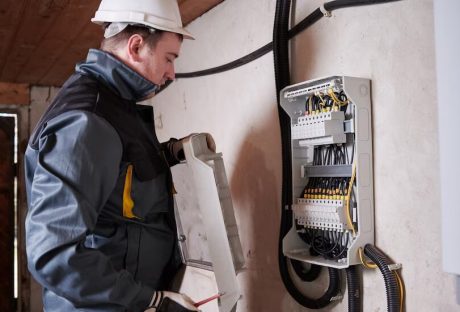When it comes to stocks vs. real estate, new investors are often left with questions about which opportunity works for them. Understanding the trends affecting these markets can help you get ahead of the crowd, avoid mistakes, and make more money.
As the real estate market evolves, new investment opportunities and trends emerge yearly. For 2023, new investors should watch several real estate investment trends closely.
From rising rental costs to changes in rental patterns, understanding and capitalizing on these trends can help new investors make informed decisions and stay ahead of the curve in the competitive world of real estate investing. This article will delve deeper into these trends and provide valuable insights for new investors. Let’s go:
Real Estate Investment Trends in 2023

Rising Rental Cost
One of the most highly anticipated trends new investors should watch out for is a rise in rental costs. Considering the economic shifts in the country, rental prices are inflating at a faster rate. Thus, landlords charging their tenants more will be a trend that’s hard to ignore and will most likely continue throughout the year.
For property owners that can leverage this trend, it’s certainly good news because demand in rentals means landlords will see their revenue soar. So even if your exit strategy is to buy and hold, you could still accumulate a tidy profit on your investment.
On the other hand, renters are likelier to be left with the short end of the stick as higher demands mean more competition. Thus, many tenants might have to settle for smaller spaces at higher fees as prices climb.
With that in mind, you have to be cautious when setting your rental prices so you don’t drive away potential renters. Bay Property Management Group Northern Virginia can guide you on how high rents should be to avoid vacancies while still turning a profit.
Changes in Home Buying Market
Another emerging trend investors should expect in 2023 is a rise in home buying. Despite a projection that the median price for homes will likely rise by 5.4%, the market will probably see a positive shift in the number of expectant buyers.
Of course, that also means a subsequent price rise as demand surges. Thus, savvy investors are eager to secure financing to purchase homes they can hold before selling off for profit. While this exit strategy isn’t new, we expect to see a rise in this trend as the year unfolds.
Hence it would be wise to get ahead and invest in prime property that would be worth a lot more in a couple of months. Your best bet for a higher ROI is to purchase houses in upcoming locations. But being able to spot them will require in-depth property analysis.
Fractional Property Ownership
A surprising trend has emerged amid rising rental costs and changes in the home-buying market. Investors are adopting a new trend called fractional property ownership, which applies to virtual and physical properties.
For a long time, one of the drawbacks of investing in real estate was its lack of liquidity and indivisibility. But with fractional ownership, investors can make down payments to own a portion of a property. Find the Importance and benefits of having a living will.
While that might mean smaller returns, it also means investors don’t have to worry about securing significant capital. In other words, in 2023, we can expect less gatekeeping as more fractional owners arrive on the scene. It also means that investors can diversify their funds by owning pieces of multiple properties.
As a result, you could enjoy the perks of diversification, such as low risk, more stability, and greater returns on your portfolio. And as more people become technologically savvy, this trend will likely be around for a while so that you can buy into the market early for the best returns.
Is Real Estate Protected Against Inflation?

Inflation can significantly reduce your spending power and erode your wealth over time. That’s why wise individuals don’t just look for ways to save. Instead, they invest in opportunities that can hedge their wallets. And although real estate has a long-established reputation for being one of the best hedges, times can vary, and you need to act accordingly.
With trends like rising rental costs that make property ownership more expensive, it’s perfectly normal to wonder if real estate can protect your money in 2023. After all, if it’s more costly than ever before to buy a property, is it worth it? In addition, many economists would argue that we’re experiencing a “demand pull” type of inflation where costs go up because of increased demand.
Thus, considering more millennials are gaining financial independence and looking to rent, being a landlord could be a great way to keep pace with inflation and earn a tidy profit.
Conclusion
In conclusion, the real estate investment landscape constantly evolves, and new trends are emerging yearly. Therefore, as we move into 2023, it’s crucial for new investors to keep a close eye on the market and be aware of the latest trends.
From rising rental costs to fractional property ownership, investors have plenty of opportunities to explore. By staying up-to-date on the latest trends and incorporating them into their investment strategy, new investors can position themselves for success in the dynamic world of real estate.
Also, hire a professional property manager to walk you through these trends and make better financial decisions for your rental business.
Read Also:
- Invest Real Estate in Detroit: 7 Things You Need to Know Before Buying Your First Investment
- Real Estate Syracuse NY Investment: Flipping Houses
- A Beginners Guide to Listed Investment Companies























